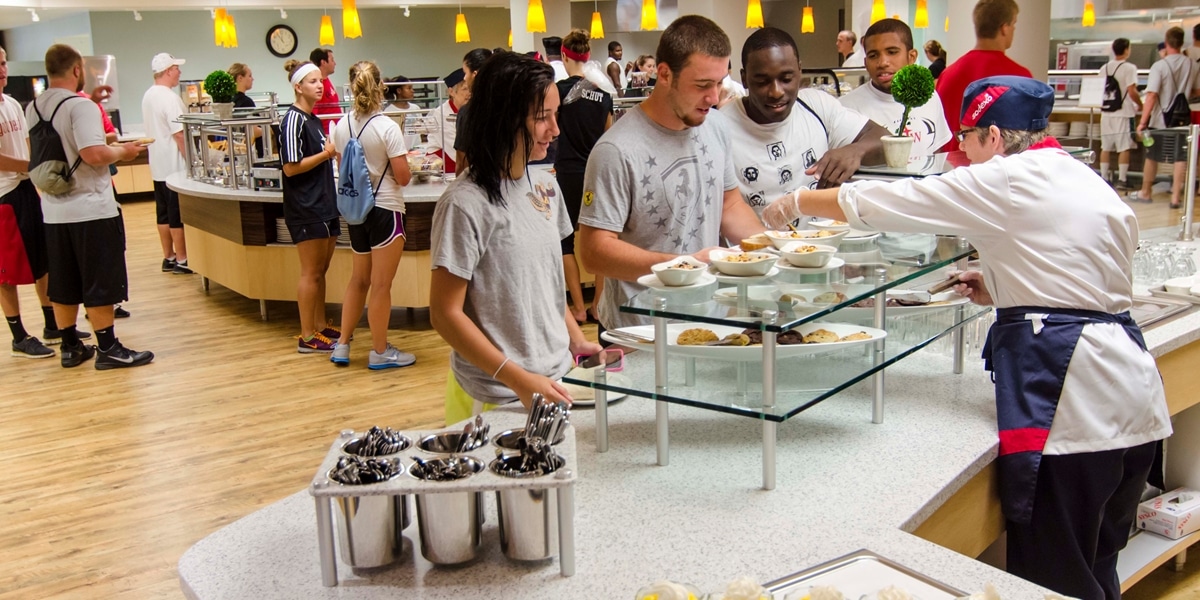In this fast-paced and modern age dining has become more than simply an occasion to eat. It is now an experience which reflects the culture of the individual and forms the foundation of a community. Food service companies played an integral role in this change.
Food service businesses, also called foodservice companies are a variety of businesses that cater to different culinary needs in various industries. These businesses offer a myriad of gastronomy behind the scenes regardless of whether they are in corporate offices as well as hospitals, educational institutions, or entertainment locations. For more information, click cafeteria food service

The industry of contract food services is a key segment in this field. These master chefs specialize in supplying turnkey dining solutions for establishments and companies. They collaborate with their customers in creating menus specifically tailored to the preferences and dietary needs of each restaurant. Food service companies contracted by contract are also responsible for the efficient execution of meals, making every mealtime a special occasion.
Let’s take a deeper look at the roles of food service contractors by placing ourselves in their position. They function as culinary architects, conceiving and constructing the basis of dining experiences. They handle the intricate choreography involved in sourcing ingredients, preparing meals, serving them, all in a manner that is hygienic and adheres to safety standards. Food service providers are masters at adapting adept at tailoring their skills to fit a corporate environment or a healthcare institution with equal finesse.
Food service management companies work in collaboration with contractors. Imagine them orchestrating the various components of a unified dining experience. They have a wide-ranging function that includes not only creating menus, as well as managing operational details. Food service management companies show a choreographed show in the background. From ensuring hygiene and following regulations to staffing, they control their inventory, ensure hygiene and adhere to the rules.
Within the tapestry of food service firms cafeterias are a distinct thread. Cafeterias, typically the heart of establishments, are more than just places for people to eat. They are also spaces where conversations and ideas flourish. The cafeteria is more than a meal. it encourages a sense mutual respect. These services are the embodiment of choice, providing an array of culinary delights that cater to diverse palates.
In a world where the importance of quality and convenience is paramount food service businesses are evolving into trend-setting companies. They have used technology to improve ordering procedures, enhance the customer experience and ensure that diners have their preferences met with exactness. Online ordering, payment methods that are touchless, and personalized meal plans are just some examples of how these companies have embraced innovation.
In addition, the social responsibilities borne by food service companies cannot be overstated. They are eco-friendly due to their focus on sustainability and ethical buying. These companies are committed to assisting local farmers and to reducing food waste.
In conclusion, the realm of food service companies is a vibrant web of which is interspersed with culinary knowledge along with innovation and a profound knowledge of human-human connection. Every aspect, from meticulous work done by contracted food service companies and the orchestration expertise of food service management organizations, plays a crucial role in delivering memorable dining experiences. Cafeterias that blend nutrition and community, add warmth to any institution. These companies are continuing to make use of technology and sustainable practices, solidify their position as creators of delicious dining moments. They make sure that each bite tells of creativity, care and social connection.
